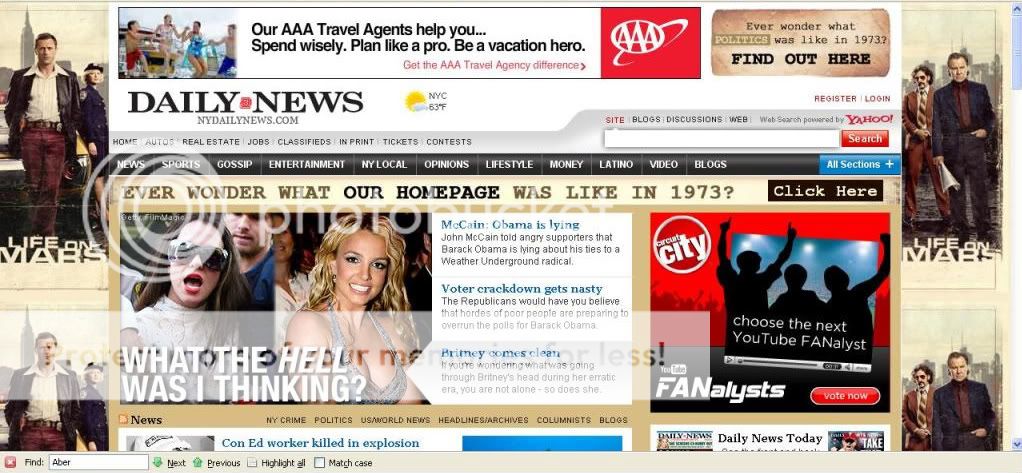Earlier this week, Creative Loafing, the parent company of alt-weeklies like Washington D.C.’s City Paper and the Chicago Reader, filed for bankruptcy. The go-to source for the background on this is this story in Atlanta magazine.
How this will affect the Reader remains to be seen, but this excerpt doesn’t bode well:
In fact, in his memo to employees, Eason said he wants to “get us quickly to a daily publishing web company that happens to have a weekly print publication that is a reference point for the web.” To staffers, Eason has been holding up the Huffington Post’s Chicago website as a model. It has one employee, who essentially sifts through every media outlet in Chicago for the best stories and then links to them. He’s a filter of content, but not a creator of one. Eason is in awe of the model.
Eason sees his papers doing something similar, but it “doesn’t mean we give up on original content.”
I know as well as anyone how difficult it is to make a site feel vibrant on a daily basis, when it’s largely dependent on weekly content. And I’m glad that linking to external sites is no longer seen (by most, anyway) as the great traffic-killer it once was. But remaking your site into a blog of blogs in order to do it, isn’t the answer.
First, that kind of curation takes time. When you link to a site, you’re essentially telling your readers “This is worth your time” unless context says otherwise. It requires reading, reporting and analysis, not just random posting alongside a pretty picture. You can say it won’t take away from writing and producing original content, but unless you expand your staff – and most newspapers and magazines aren’t in a position to do that – it’s a zero-sum game. If I had the kind of talented staff that Eason has at his disposal (and at TOC, we do), I’d rather have my writers working on providing more analysis and reporting.
Which brings me back again to Chuffpo.
When you do what ChuffPo does, you need to link to the heater stories, the ones that get people clicking. But when you do that, you end up repeating much of what people find elsewhere, which robs your site of distinction. So you need to provide your readers with something they can’t get elsewhere. Again, I’m not saying that being an aggregator of content is a bad idea. Some of the sites I read on a daily basis do just that. But my appetite for sites like that is limited. At this point, I don’t find myself needing another one, particularly one that doesn’t seem to have its own voice. (Despite my clear obsession with it, ChuffPo still hasn’t made it into my RSS feed.)
To be fair, ChuffPo does publish original content – of questionable veracity and quality – but it’s largely dependent on writers from other publications, who can depend on their full-time gigs for income. The only reason this model works is because the Huffington name can lure those folks to post for free and the Huffington money can bankroll it through any rough ad waters. It’s not a model that one should adopt in favor of something that already works. I can’t speak to the other Creative Loafing properties, but the Reader already has several blogs I consider daily destinations that are more akin to the spirit of blogging than anything I see on ChuffPo. (Their attribution tactics alone confuse even the sharpest readers, Roger Ebert, for example.)
Eason does have a point though: Readers ARE interested in what their favorite writers read. But the reason that interest is stoked in the first place is because their writers ARE writing. They get a sense of what these people are like through their analysis and the topics they cover. It makes them want to know more.
Plus, the tools to do these sort of things – direct your readers to what your writers are reading – already exist with sites like Delicious and GoodReads (in fact, the TOC blog contains links to both for our Eat Out and Books editors, respectively).
When ChuffPo launched, I said that Chicago didn’t need more sites that do the same old thing. It needed sites that cover topics that aren’t covered elsewhere, backed up by pick-up-the-phone reporting and good writing. (We’ll be getting more of that when Eater and Curbed finally launch next week.) At some point, if everyone’s linking, but no one’s producing original content…well, there won’t be much worth linking to anymore.
